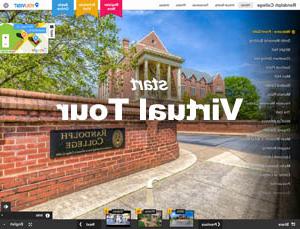About
Council for the Accreditation of Educator Preparation (CAEP)
In 2024, the Randolph College Educator Preparation Program (EPP) earned national accreditation from the Council for the Accreditation of Educator Preparation (CAEP) for its undergraduate licensure programs and its master’s degree programs in education and teaching.
As the data on this page show, our graduates leave Randolph excited to work with diverse learners, skilled at planning rigorous and engaging instruction, and ready to be leaders in their schools. As a result, our graduates are in high demand.
The EPP offers licensure in the following areas: biology (grades 6–12), chemistry (grades 6–12), earth science (grades 6–12), elementary education (grades preK–6), English (grades 6–12), health and physical education (grades preK–12), history/social science (grades 6–12), mathematics (grades 6–12), mathematics: algebra I (middle school), physics (grades 6–12), Spanish (grades preK–12), special education: general curriculum (grades preK–12), theatre arts (grades preK–12), and visual arts (grades preK–12).
CAEP Accountability Measures
The data and analyses provided here are from the three most recent academic years, providing a current snapshot of the EPP and our completers.
Measure 1: Completer Effectiveness and Impact on P-12 Learning and Development
Each year, we ask a sample of recent program completers to participate in a case study. During the case study, we talk with completers, observe their teaching, examine their students’ academic growth, and talk with their administrators to understand better how our program completers contribute to their students’ learning. Our three most recent case studies are available for review.
Measure 2: Satisfaction of Employers and Stakeholder Involvement
Satisfaction of Employers
Randolph College participates in the Virginia Education Assessment Collaborative (VEAC) Employer Survey for Initial Licensure programs. The Virginia Education Assessment Collaborative utilizes a common, standardized survey of program completers and their employers using the language and concepts of the Commonwealth of Virginia’s Uniform Performance Standards. Each year, 36 Educator Preparation Programs in the Commonwealth of Virginia survey their program completers as well as their employers in order to improve their programs and meet the requirements of the Virginia Department of Education and CAEP. By standardizing survey recruitment, timelines, and process, VEAC hopes to reduce the complexity of surveys that principals and administrators complete each year to support EPPs. By benchmarking with the other VEAC participants, EPPs can better understand their strengths and areas for improvement. Additionally, VEAC provides a common language and prompts discussion for program improvement.
- 2022-2023 VEAC Employer Survey for Initial Licensure Report
- 2021–2022 VEAC Employer Survey for Initial Licensure Report
- 2020–2021 VEAC Employer Survey for Initial Licensure Report
Stakeholder Involvement
The Randolph College EPP is just one part of a large network of schools and other organizations working to support preK-12 students in Virginia and beyond our borders. Through our EPP Advisory Board, the EPP works closely with internal and external partners to investigate local needs and make changes to our programs. The EPP Advisory Board meets 2-4 times per year and includes EPP faculty, other Randolph faculty, college administrators, teachers and administrators from surrounding school divisions, leaders from youth-serving community organizations, and current EPP students.
- Current EPP Advisory Board Members 2023-2024
- Recent Board Minutes: October 2023, November 2023, March 2024, April 2024
The EPP also has formal partnerships with several local schools and community organizations.
Measure 3: Candidate Competency at Program Completion
The EPP uses multiple forms of evidence to monitor candidates’ content knowledge, pedagogical knowledge, classroom skills, dispositions, and development as professionals. As they approach program completion, candidates demonstrate their competency while completing two supervised student teaching placements; by planning, conducting, and presenting on an action research project; and by assembling a professional portfolio.
Evidence of Candidate Competency During Student Teaching
Student Teaching Effectiveness Evaluations
- Student Teaching Effectiveness Evaluations 2022-2023
- Student Teaching Effectiveness Evaluations 2021–2022
- Student Teaching Effectiveness Evaluations 2020–2021
Candidates’ Dispositions Evaluations
- Candidates’ Dispositions 2022-2023
- Candidates’ Dispositions 2021–2022
- Candidates’ Dispositions 2020–2021
Pupil Surveys
Evidence of Candidate Competency From the Action Research Sequence
- Action Research Paper and Presentation Performance 2022-2023
- Action Research Paper and Presentation Performance 2021–2022
- Action Research Paper and Presentation Performance 2020–2021
Evidence of Candidate Competency Via the Professional Portfolio
Measure 4: Ability of Completers to be Hired in Education Positions for Which They Have Prepared
- Ability of Completers to be Hired in Education Positions for Which They Have Been Prepared 2020-2023
Previous CAEP Reporting Measures
Ability of Completers to Meet Licensing Requirements and Additional State Requirements
Candidates also demonstrate their competency by taking and passing the professional teacher assessments required by the Virginia Department of Education (VDOE). Per the Regulations Governing the Review and Approval of Education Programs in Virginia, the VDOE defines program completers as individuals who have successfully completed all coursework, required assessments, including those prescribed by the Board of Education, and supervised student teaching or required internship.
As reported on the three most recent VDOE biennial reports, 100% of program completers passed the Board of Education’s required licensure exams.
Student Loan Default Rates and Other Consumer Information
The Integrated Postsecondary Education Data System (IPEDS) Institution Profile report provides annual data on multiple institutional data indicators (e.g., Student Charges, Student Financial Aid, Net Price, Enrollment, Completions, Retention and Graduation, and Outcomes Measures) relevant to Randolph College stakeholders. These data can be reviewed for Randolph and in comparison with other institutions. Data are updated annually and can be accessed here.
The national average student loan default rate is publicly available from the Federal Student Aid website.
Randolph College’s most recent three-year default rates are also publicly available from the Cohort Default Rate Database. Search using OPE-ID: 003734 or School: Randolph College.
More Information
For more information on the cost of attendance, please contact the Office of Financial Aid.


